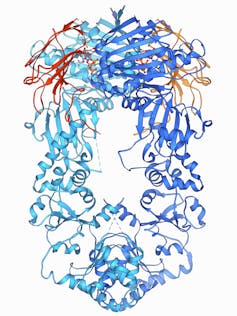2023/06/06

Former Secretary of State Henry Kissinger responds to opening statements by members of the Senate POW/MIA committee before making his own opening statement on Sept. 22, 1992, in Washington. D.C..
- Robert Giroux/AFP/Getty Images North America/TNS
Henry Kissinger celebrated his 100th birthday on May 27, proving once again his remarkable staying power as one of America’s most well-known and influential foreign policy players in modern times. Presidents and other leaders of U.S. national security seek his counsel even today.
But his Machiavellian legacy, which continues to shape America’s foreign policy, is nothing to celebrate, and we continue to pay a price for it.
Kissinger, who served as both secretary of state and national security adviser under President Richard Nixon and his successor Gerald Ford, embodies the impunity of the foreign policy establishment.
Under Kissinger’s leadership, the United States undermined democracy, disdained human rights, and propped up a wide range of brutal and violent dictators. We know this because the paper trail documenting his offenses is long, thanks to his tendency to secretly record his own phone calls in and out of the White House (separate from Nixon’s surreptitious White House tapes).
His foreign policy approach was one in which might makes right, ends justify any means, and long-term consequences are dismissed. In his world, if major states accepted behavior, that behavior was acceptable regardless of the collateral damage along the way.
This worldview shaped Kissinger’s disastrous policies throughout the 1970s. In Chile, at Kissinger’s behest, the United States supported Augusto Pinochet, a Chilean general who launched a coup in 1973, overthrowing Chile’s democratically elected socialist president, Salvador Allende. Following Argentina’s coup in 1976, Kissinger blocked State Department efforts to criticize Argentina’s murderous and destabilizing military leaders. In Indonesia, Kissinger ensured the United States provided political and military support for the military dictator General Suharto in his invasion of East Timor and subsequent slaughter of civilians.
The most memorable of his brutal policies, however, were the bombing campaigns across Vietnam, Cambodia and Laos. The laws of war and even Congress’ oversight role acted as no constraint on his actions. A recent in-depth report into previously classified military documents and interviews with survivors revealed the secret Cambodia campaign to be far more brutal and deadly than previously realized, killing as many as 150,000 civilians. This completely destabilized Cambodia’s government and laid the groundwork for the rise of the Khmer Rouge and its subsequent genocide.
His unaccountable abuses weren’t limited to foreign countries either. In a Nixon-like fashion, Kissinger pressed the FBI director to illegally wiretap his own aides after news of the secret and unauthorized campaigns in Cambodia and Laos were reported in the press. Kissinger undercut any efforts at oversight and accountability, including by wresting foreign affairs leadership from the State Department to the White House, a trend his successors embraced and which continues to this day.
That lack of accountability costs lives, both American and foreign, and Kissinger disregarded the American lives lost just as much as any other. “Military men are dumb, stupid animals to be used” as pawns for foreign policy, Kissinger said, as reported by Bob Woodward and Carl Bernstein, who broke the Watergate case. No country should allow anyone with that attitude within miles of our decisions to go to war.
And yet Kissinger left office with his stature intact. He then cashed in on it, establishing a corporate firm staffed by the country’s national security elites to provide geopolitical consulting services. Today it’s common practice for foreign policy leaders to profit from their prestige after leaving government service, but then it was a novel business idea.
Through this firm, Kissinger and his associates helped undisclosed private clients profit from foreign policy decisions that he and his colleagues continued to informally (and sometimes formally) shape. Kissinger’s (inexplicably strong) reputation is likely what made this clear conflict of interest somehow acceptable and mainstream today.
To those who claim he was our most effective secretary of state in recent history, I would strongly disagree. His foreign policy program not only lacked a moral compass or compassion, but his national security choices helped destabilize and destroy parts of the world that have still not recovered, and many lives in the process. Some estimates put the death toll linked to his policies in the millions.
That history helped shape the perception that persists across the Global South today that America is an imperial power with intentions that cannot be trusted, a legacy that still harms our ability to generate support on everything from Ukraine’s defense to our leadership on climate change.
Kissinger never paid a price for the many American misdeeds that he led, and the pattern of impunity in the national security establishment has persisted since. Look no further than the slew of immoral, illegal and ineffective policies that made up America’s post-9/11 response and the continued prominence of its architects to understand how this system still works. For all of this, Kissinger paved the way.
Once Kissinger finally bids us adieu, I hope he takes his foreign policy impunity with him to the grave.
____
(Elizabeth Shackelford is a senior fellow on U.S. foreign policy with the Chicago Council on Global Affairs. She was previously a U.S. diplomat and is the author of “The Dissent Channel: American Diplomacy in a Dishonest Age.”)
___
© Chicago Tribune
Henry Kissinger celebrated his 100th birthday on May 27, proving once again his remarkable staying power as one of America’s most well-known and influential foreign policy players in modern times. Presidents and other leaders of U.S. national security seek his counsel even today.
But his Machiavellian legacy, which continues to shape America’s foreign policy, is nothing to celebrate, and we continue to pay a price for it.
Kissinger, who served as both secretary of state and national security adviser under President Richard Nixon and his successor Gerald Ford, embodies the impunity of the foreign policy establishment.
Under Kissinger’s leadership, the United States undermined democracy, disdained human rights, and propped up a wide range of brutal and violent dictators. We know this because the paper trail documenting his offenses is long, thanks to his tendency to secretly record his own phone calls in and out of the White House (separate from Nixon’s surreptitious White House tapes).
His foreign policy approach was one in which might makes right, ends justify any means, and long-term consequences are dismissed. In his world, if major states accepted behavior, that behavior was acceptable regardless of the collateral damage along the way.
This worldview shaped Kissinger’s disastrous policies throughout the 1970s. In Chile, at Kissinger’s behest, the United States supported Augusto Pinochet, a Chilean general who launched a coup in 1973, overthrowing Chile’s democratically elected socialist president, Salvador Allende. Following Argentina’s coup in 1976, Kissinger blocked State Department efforts to criticize Argentina’s murderous and destabilizing military leaders. In Indonesia, Kissinger ensured the United States provided political and military support for the military dictator General Suharto in his invasion of East Timor and subsequent slaughter of civilians.
The most memorable of his brutal policies, however, were the bombing campaigns across Vietnam, Cambodia and Laos. The laws of war and even Congress’ oversight role acted as no constraint on his actions. A recent in-depth report into previously classified military documents and interviews with survivors revealed the secret Cambodia campaign to be far more brutal and deadly than previously realized, killing as many as 150,000 civilians. This completely destabilized Cambodia’s government and laid the groundwork for the rise of the Khmer Rouge and its subsequent genocide.
His unaccountable abuses weren’t limited to foreign countries either. In a Nixon-like fashion, Kissinger pressed the FBI director to illegally wiretap his own aides after news of the secret and unauthorized campaigns in Cambodia and Laos were reported in the press. Kissinger undercut any efforts at oversight and accountability, including by wresting foreign affairs leadership from the State Department to the White House, a trend his successors embraced and which continues to this day.
That lack of accountability costs lives, both American and foreign, and Kissinger disregarded the American lives lost just as much as any other. “Military men are dumb, stupid animals to be used” as pawns for foreign policy, Kissinger said, as reported by Bob Woodward and Carl Bernstein, who broke the Watergate case. No country should allow anyone with that attitude within miles of our decisions to go to war.
And yet Kissinger left office with his stature intact. He then cashed in on it, establishing a corporate firm staffed by the country’s national security elites to provide geopolitical consulting services. Today it’s common practice for foreign policy leaders to profit from their prestige after leaving government service, but then it was a novel business idea.
Through this firm, Kissinger and his associates helped undisclosed private clients profit from foreign policy decisions that he and his colleagues continued to informally (and sometimes formally) shape. Kissinger’s (inexplicably strong) reputation is likely what made this clear conflict of interest somehow acceptable and mainstream today.
To those who claim he was our most effective secretary of state in recent history, I would strongly disagree. His foreign policy program not only lacked a moral compass or compassion, but his national security choices helped destabilize and destroy parts of the world that have still not recovered, and many lives in the process. Some estimates put the death toll linked to his policies in the millions.
That history helped shape the perception that persists across the Global South today that America is an imperial power with intentions that cannot be trusted, a legacy that still harms our ability to generate support on everything from Ukraine’s defense to our leadership on climate change.
Kissinger never paid a price for the many American misdeeds that he led, and the pattern of impunity in the national security establishment has persisted since. Look no further than the slew of immoral, illegal and ineffective policies that made up America’s post-9/11 response and the continued prominence of its architects to understand how this system still works. For all of this, Kissinger paved the way.
Once Kissinger finally bids us adieu, I hope he takes his foreign policy impunity with him to the grave.
____
(Elizabeth Shackelford is a senior fellow on U.S. foreign policy with the Chicago Council on Global Affairs. She was previously a U.S. diplomat and is the author of “The Dissent Channel: American Diplomacy in a Dishonest Age.”)
___
© Chicago Tribune
NO FIGHTING IN THE WAR ROOM--- DR. STRANGELOVE IS KISSINGER
 Professor Cornel West speaks during a press conference at The National Press Club September 15, 2016, in Washington, D.C. West announced his candidacy for the 2024 presidential race. - Zach Gibson/GETTY IMAGES NORTH AMERICA/TNS
Professor Cornel West speaks during a press conference at The National Press Club September 15, 2016, in Washington, D.C. West announced his candidacy for the 2024 presidential race. - Zach Gibson/GETTY IMAGES NORTH AMERICA/TNS










